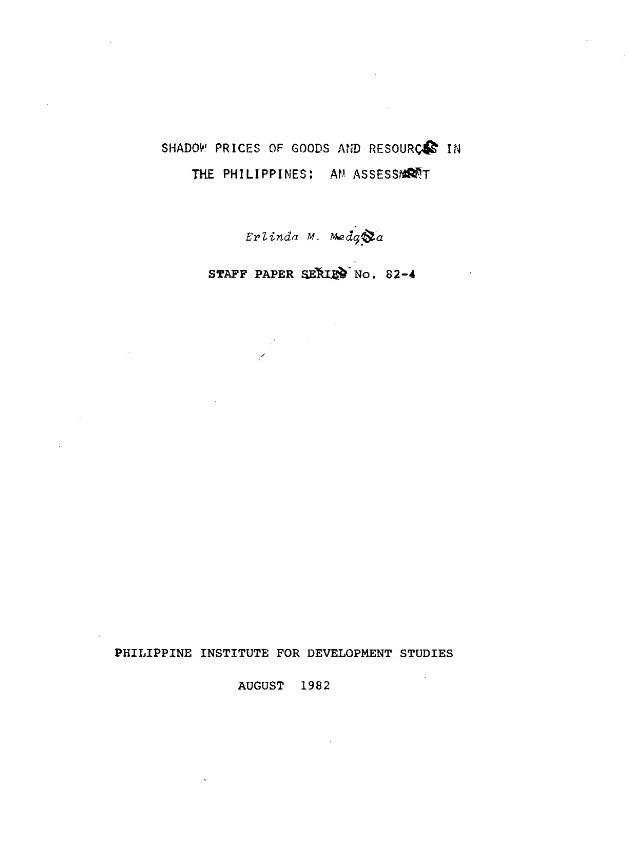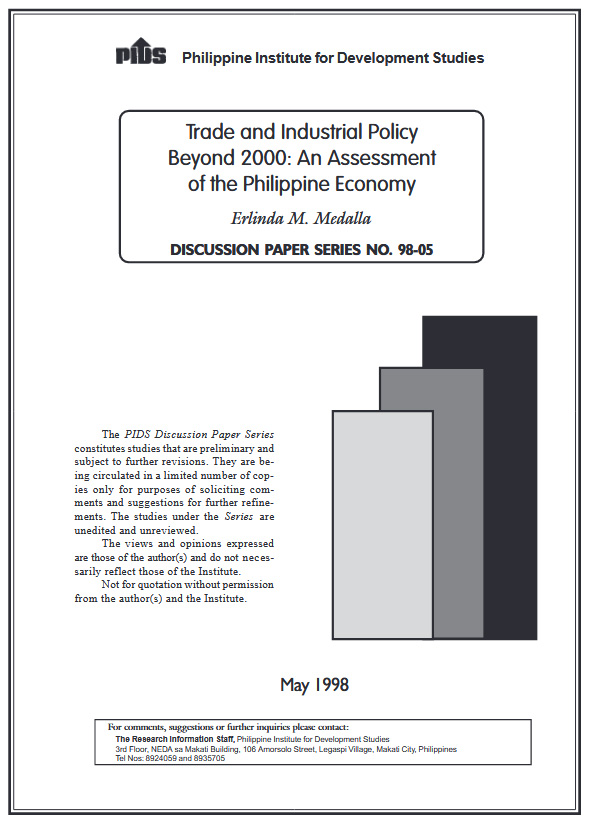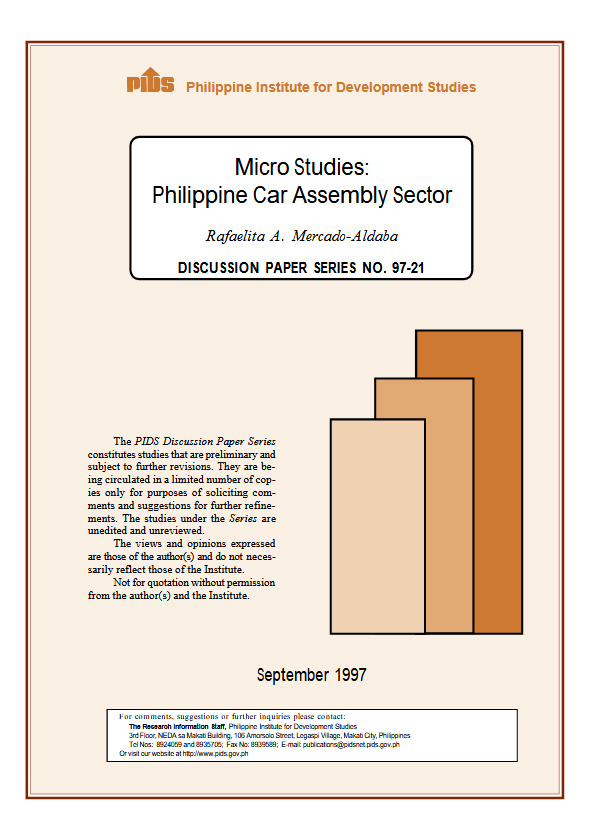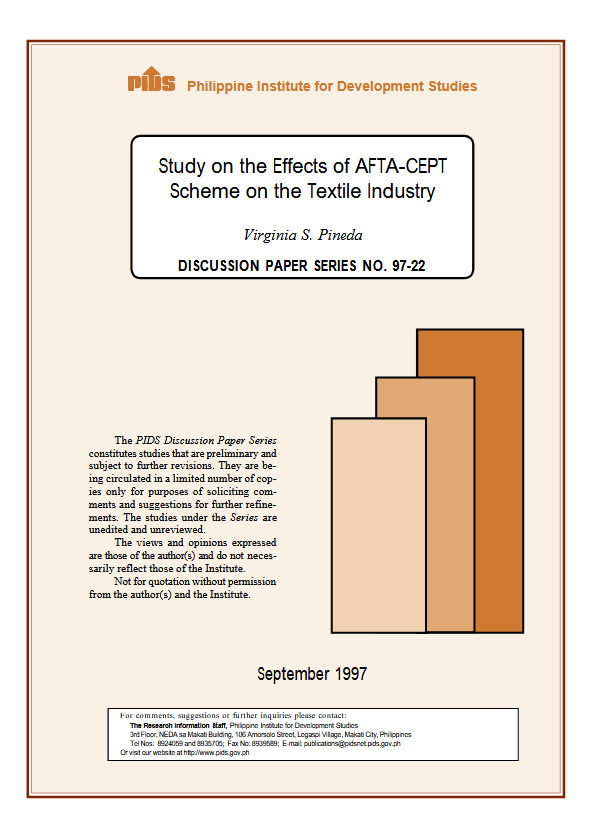When market imperfections are present, which is often the case for the less developed countries, observable market prices do not usually indicate true valuation of goods and resources to society. An alternative method of valuation is thus needed in the economic evaluation projects. This is the role of shadow prices – prices that would reflect social costs and benefits and the use of which would lead to proper selection of projects and thus improved welfare. This paper summarizes the existing estimates of shadow prices of goods and resources in the Philippines. These include implicit tariffs, shadow exchange rate, shadow wage rate and the social rate of discount and the shadow price of capital. The methodologies and assumptions utilized in the estimations are explained. Moreover, some policy implications of the results are derived.













